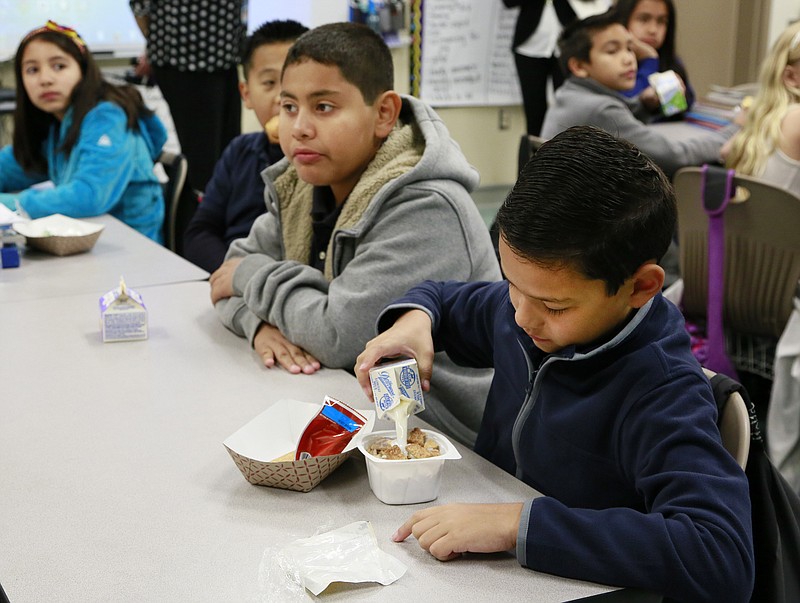
Share On Social!
Overall Latinos are disproportionately affected by poverty, food insecurity, and unemployment compared to their white peers. According to Feeding America, Latinos are also more likely to receive emergency food assistance than their White, non-Hispanic peers and less likely to receive SNAP benefits and are Latinos are more than twice as likely to be food insecure as White, non-Hispanics.
Food insecurity can often lead to adverse health outcomes and can cause extreme stress. Both outcomes can negatively impact the long-term health of Latinos.
In Texas (38.42% Latino population), members of the legislature have proposed laws with the aim of alleviating some of the problems for food insecure kids in the state.
According to The Dallas Morning-News, lawmakers are trying to make it easier to feed hungry kids while preventing them from being shamed when their families don’t have enough money to pay for lunch.
In order to reduce health disparities, it is critical to address inequities in programs, practices, and policies. Join our site, connect with others, and get involved.
The Texas House of Representatives gave the preliminary approval for a bill that would allow schools in the state to create food pantries on campus using the surplus items from cafeterias that would normally be thrown away. These include foods that are packaged and unopened, unpeeled fruits and uncut or wrapped produce.
“They are literally throwing away hundreds of pounds of food every week when they really want to give it to those kids who need it,” said Rep. Diego Bernal, who authored the bill. “It just really struck me that this is such a basic human need.”
A second bill would prevent schools from taking away meals served to students who have run out of money in their cafeteria accounts. New Mexico recently passed a similar law that would prevent “lunch shaming” of students.
The nonprofit organization Feeding Texas reports that 1 in 4 children in the state are currently classified as “food insecure.” These bills come at a critical time for children in the state. Lack of access to healthy food significantly impacts a student’s education and performance in school.
“Simply put, children who are hungry can’t learn,” said Celia Cole, CEO Feeding Texas. “So it is not just our moral responsibility to help feed them, but doing so is for the overall improvement of education and in turn, economics of our state.”
Read more about this story here.
Read stories similar to this one:
- How bad is the college student homelessness problem? Read more about it here: http://salud.to/2pfxRcQ #SaludAmerica
- What is the Hispanic Wealth Project doing to shrink the wealth gap? Read about it here. #SaludAmerica http://salud.to/2okaGdF
By The Numbers
142
Percent
Expected rise in Latino cancer cases in coming years



